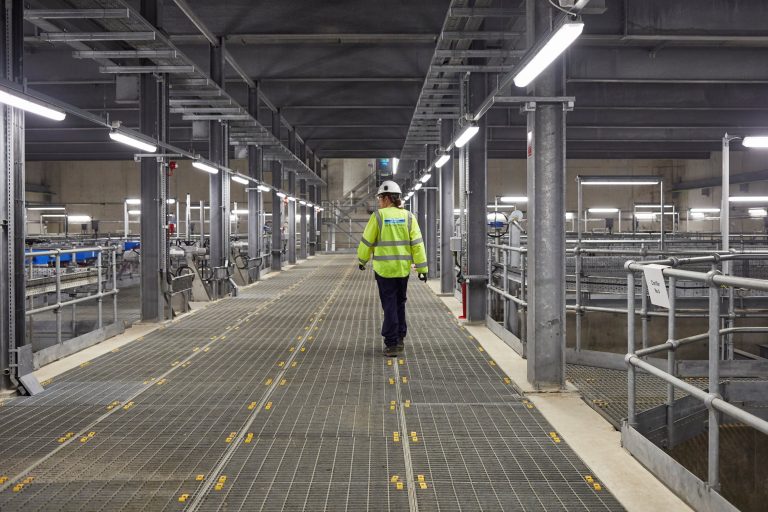Everton has appointed OCS, a global leader in facilities management, to provide integrated facilities management services at the Club’s new stadium. OCS, who currently have around 8,000 clients across the UK, Europe, the Asian-Pacific and Middle East regions, have signed a five-year agreement for facilities management solutions for Everton Stadium, including waste management, cleaning and security. Everton will make the move from Goodison Park to their new home at Bramley-Moore Dock in 2025, and the partnership will see that OCS – with a 120,000-strong global workforce and a proven track record in football stadia and events – will manage and maintain the stadium to ensure it is safe, secure and operates efficiently. When fully operational, OCS will deploy a team of up to 200 locally recruited people at Everton Stadium for matchday and core operations. Richard Kenyon, Chief Commercial and Communications Officer at Everton, said: “We are pleased to welcome OCS as provider of facilities management at our new home. “OCS, which becomes an Official Supplier of Everton Stadium, has a large global client base and a strong track record in facilities management which makes them an excellent partner for us. “From our very early meetings, it was clear that they are not only committed to the highest of standards but were also very keen to make a significant impact in our community and this is reflected by the commitments they have made to Everton in the Community over the course of the agreement. “We’re excited to work alongside OCS to bring these community initiatives to life over the coming years and to see them play their part in delivering exceptional fan and visitor experiences in our new home.” Bruce McDonnell, OCS Private Sector Managing Director at OCS, said: “We are delighted to partner with Everton. “We have seamless operations in some of the most iconic football stadiums in the UK and we have a proven track record in ensuring the safety and satisfaction of fans, players, and staff alike. “We know that Everton’s new stadium won’t just be a football stadium, it will be a destination – for music, conferences and other events alike.” McDonnell added: “We want to embark on a transformative journey together with Everton. “We want to build something exceptional together, where innovation, community, and operational excellence converge. The future of Everton’s soft services starts here, with us!” OCS will work closely with Everton to design and deliver a tailored facilities management solution using advanced technologies to increase safety and streamline efficiencies. This will include a new search and screen process. Cleaning operations will also benefit from technology such as cleaning robots to maximise productivity and support the maintenance of a clean environment. In addition to the facilities management services, OCS will work closely with the Everton’s ESG (Environmental, Social and Governance) strategies and Everton in the Community (EitC)programme. OCS will deliver a full Carbon Impact Assessment to the club and will incorporate sustainable practices into the operation of the new stadium, aligning with Everton on its commitment to reduce its carbon footprint. OCS will also create ESG champion roles to ensure social value commitments are met. OCS’s ESG champions help deliver the business’ commitments around social value, helping benefit local communities with a strong footprint based on recruitment, training and development. EitC provides life-changing opportunities, particularly for young people, aiming to give them a fresh start in life and opportunities to grow and develop. OCS will collaborate with EitC to create employment opportunities for local residents, particularly targeting vulnerable individuals. The partnership aims to recruit approximately 200 staff members for match days, with a focus on sustainable long-term employment and skill development. Additionally, the facilities management provider will participate in community recruitment events to ensure ongoing engagement and support for local job seekers beyond initial hiring needs. Jonny Young, Sector Managing Director, OCS said: “Everton in the Community is at the forefront of Football Club Social Value within the English football leagues. “We are operating hand in glove throughout the recruitment, onboarding, and training of colleagues to improve the lives and communities associated in and around Everton Football Club. “We are committed to recruiting locally, providing opportunities for all.” Building, Design & Construction Magazine | The Choice of Industry Professionals














